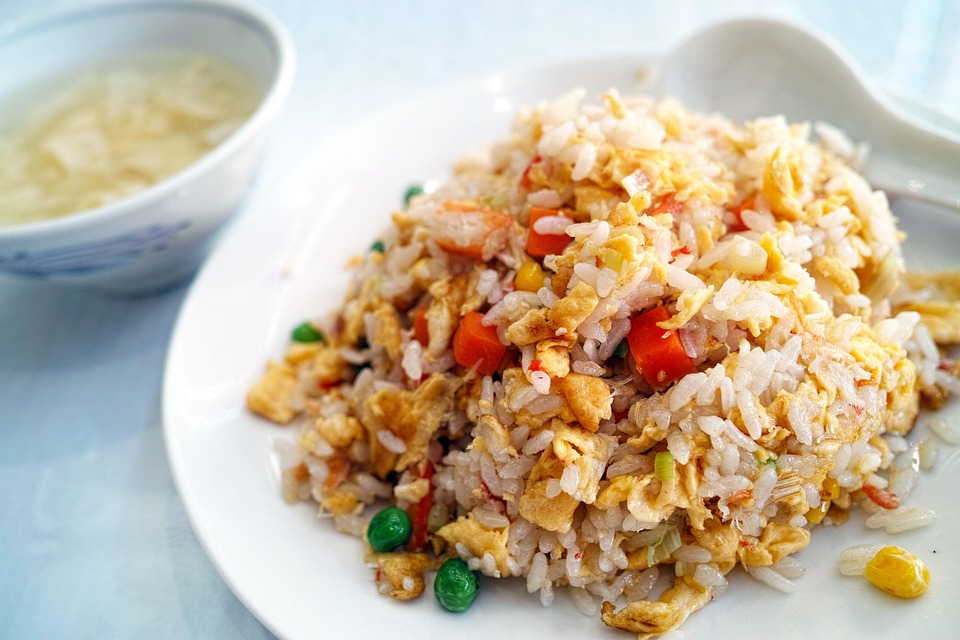[ad_1]
Malted rice, also known as kome koji, is a traditional Japanese ingredient that is gaining popularity worldwide as a sustainable and eco-friendly alternative in food production. Malted rice is made by inoculating steamed rice with koji mold (Aspergillus oryzae) and allowing it to ferment. This process produces a wide range of enzymes that can break down the starches and proteins in the rice, resulting in a variety of flavors and aromas.
Benefits of Malted Rice
There are several reasons why malted rice is considered a sustainable and eco-friendly alternative in food production:
1. Reduced Energy Consumption
The production of malted rice requires less energy compared to other food processing methods. The fermentation process is naturally occurring and does not require high levels of heat or electricity. This makes malted rice a more sustainable option for food production.
2. Low Waste Generation
Malted rice production generates minimal waste. The koji mold converts the starches and proteins in the rice into useful enzymes, leaving behind a product that is highly nutritious and can be used in a variety of food applications. This reduces the overall waste generated during the manufacturing process.
3. Versatile Ingredient
Malted rice is a versatile ingredient that can be used in a wide range of food products, including sake, soy sauce, miso, and amazake. Its ability to enhance flavors and aromas makes it a valuable addition to many cuisines around the world.
4. Nutritional Benefits
Malted rice is rich in nutrients and enzymes that have been shown to support digestion and gut health. It is also a good source of essential amino acids and vitamins, making it a valuable addition to a healthy diet.
Applications of Malted Rice
Malted rice has a wide range of applications in food production, including:
1. Sake Production
Malted rice is a key ingredient in the production of sake, a traditional Japanese rice wine. The enzymes produced during the fermentation process help to convert the starches in the rice into fermentable sugars, which are then used by yeast to produce alcohol.
2. Soy Sauce and Miso Production
Malted rice is used in the production of soy sauce and miso to enhance flavors and aromas. The enzymes in malted rice help to break down the proteins and starches in the soybeans, resulting in a more complex and flavorful end product.
3. Amazake Production
Amazake is a traditional Japanese sweet beverage made from fermented rice. Malted rice is used to produce amazake by breaking down the starches in the rice into simple sugars, resulting in a sweet and nutritious drink.
Conclusion
Malted rice is a sustainable and eco-friendly alternative in food production that offers a wide range of benefits. Its low energy consumption, minimal waste generation, versatility, and nutritional benefits make it an attractive option for food manufacturers and consumers alike. As the demand for sustainable and eco-friendly food options continues to grow, malted rice is likely to play an increasingly important role in the food industry.
FAQs
What is the process of making malted rice?
The process of making malted rice involves inoculating steamed rice with koji mold (Aspergillus oryzae) and allowing it to ferment. This fermentation process produces a wide range of enzymes that can break down the starches and proteins in the rice, resulting in a variety of flavors and aromas.
Is malted rice nutritious?
Yes, malted rice is rich in nutrients and enzymes that have been shown to support digestion and gut health. It is also a good source of essential amino acids and vitamins, making it a valuable addition to a healthy diet.
What are the applications of malted rice?
Malted rice has a wide range of applications in food production, including sake production, soy sauce and miso production, and amazake production. Its ability to enhance flavors and aromas makes it a valuable addition to many cuisines around the world.
Is malted rice sustainable?
Yes, malted rice is considered a sustainable and eco-friendly alternative in food production. Its low energy consumption, minimal waste generation, and versatile nature make it a valuable addition to the food industry.
[ad_2]





Comments